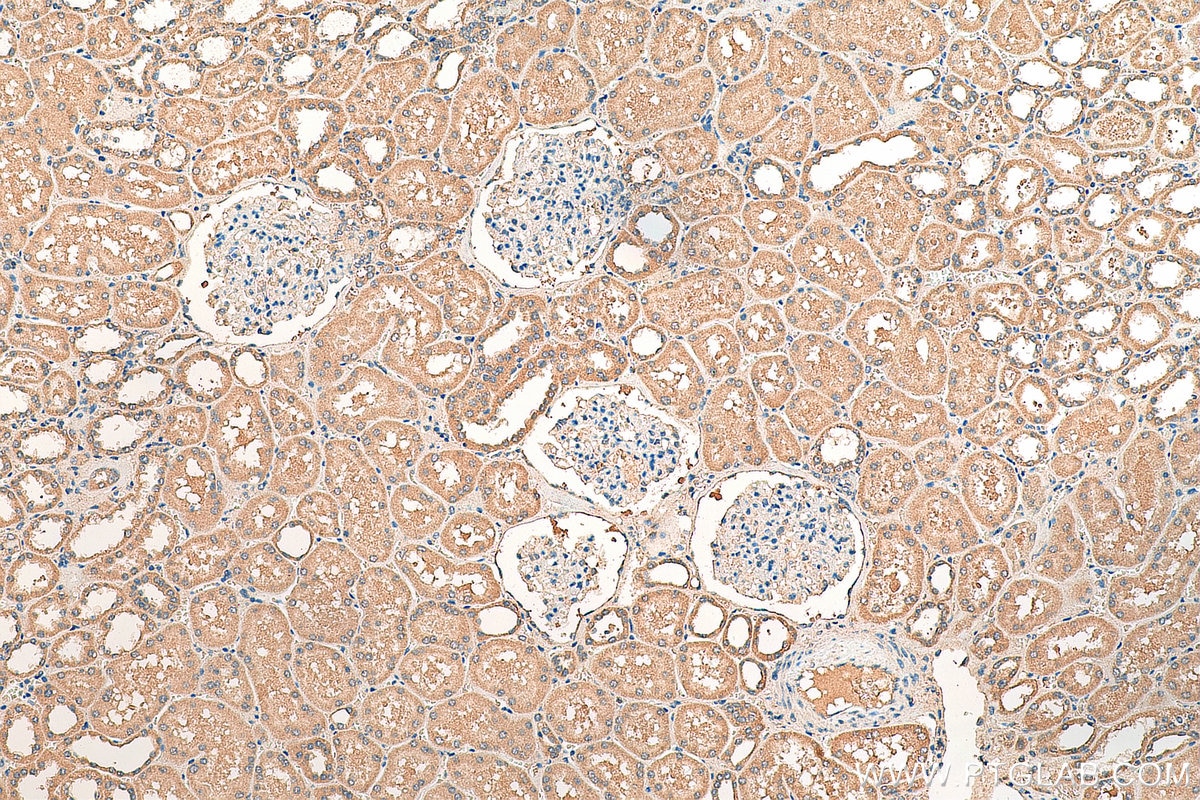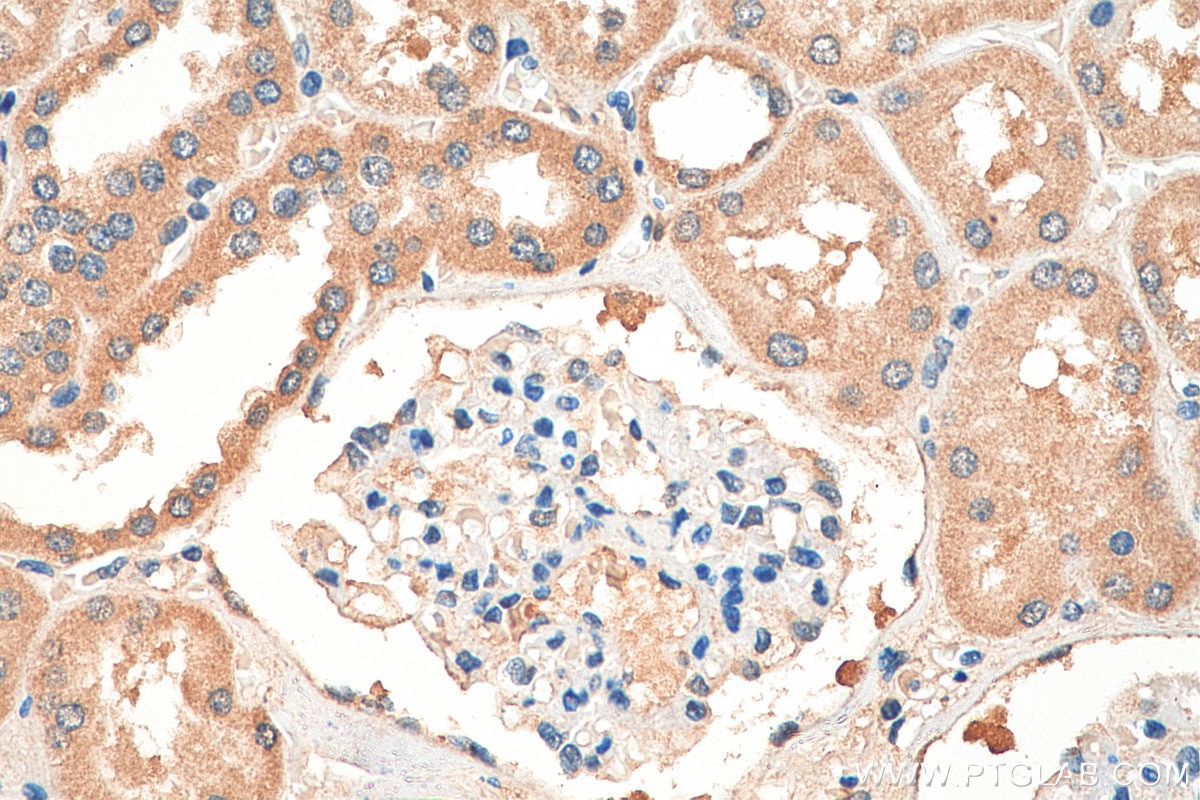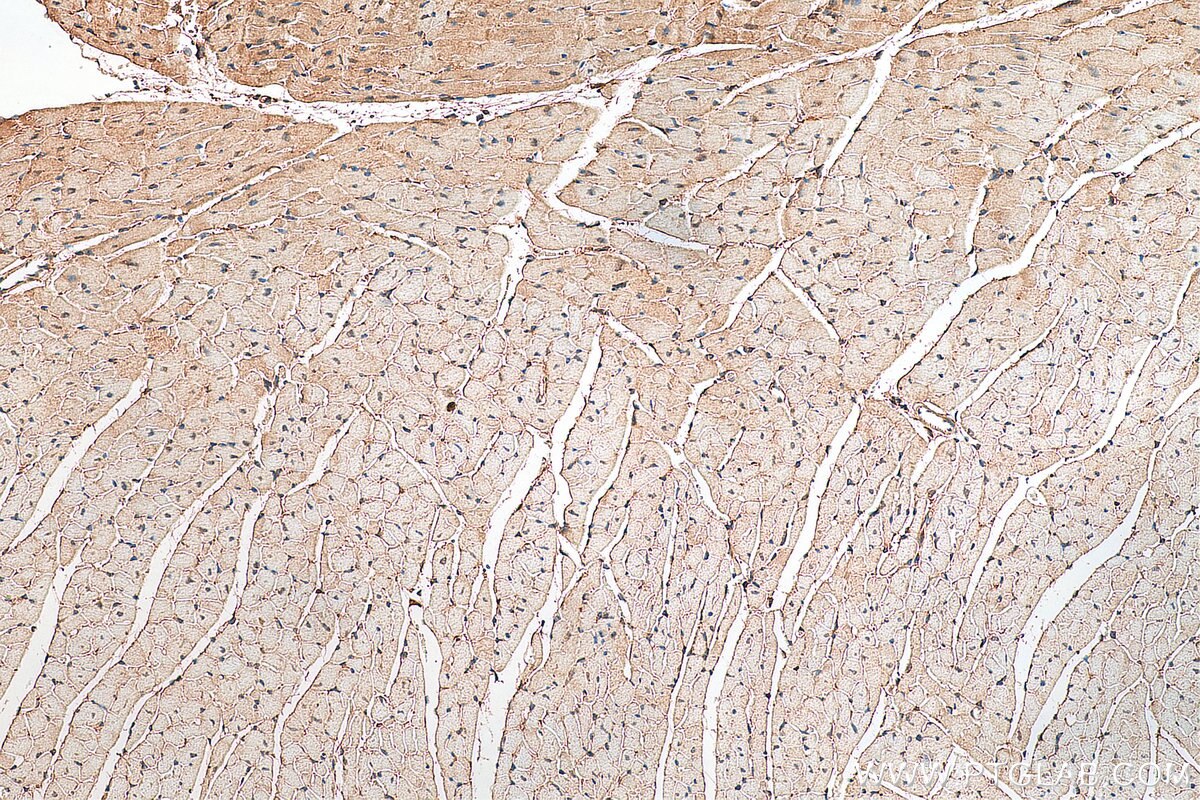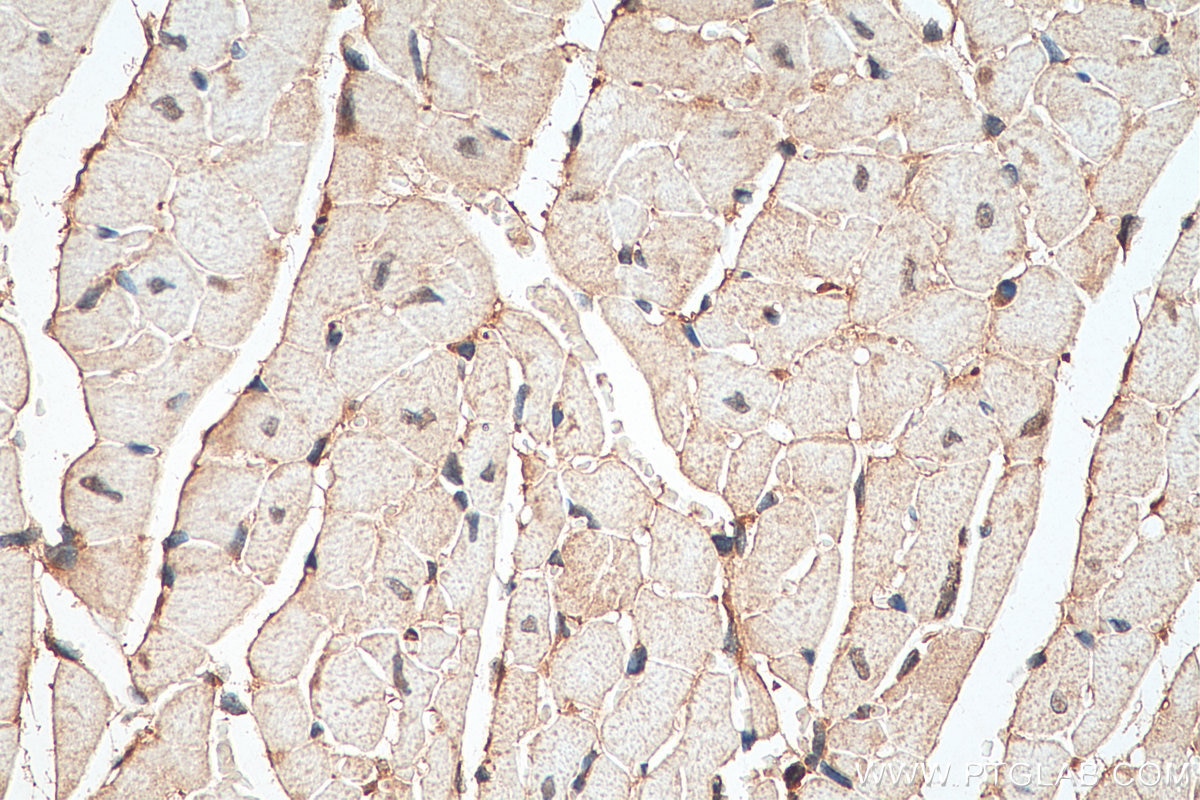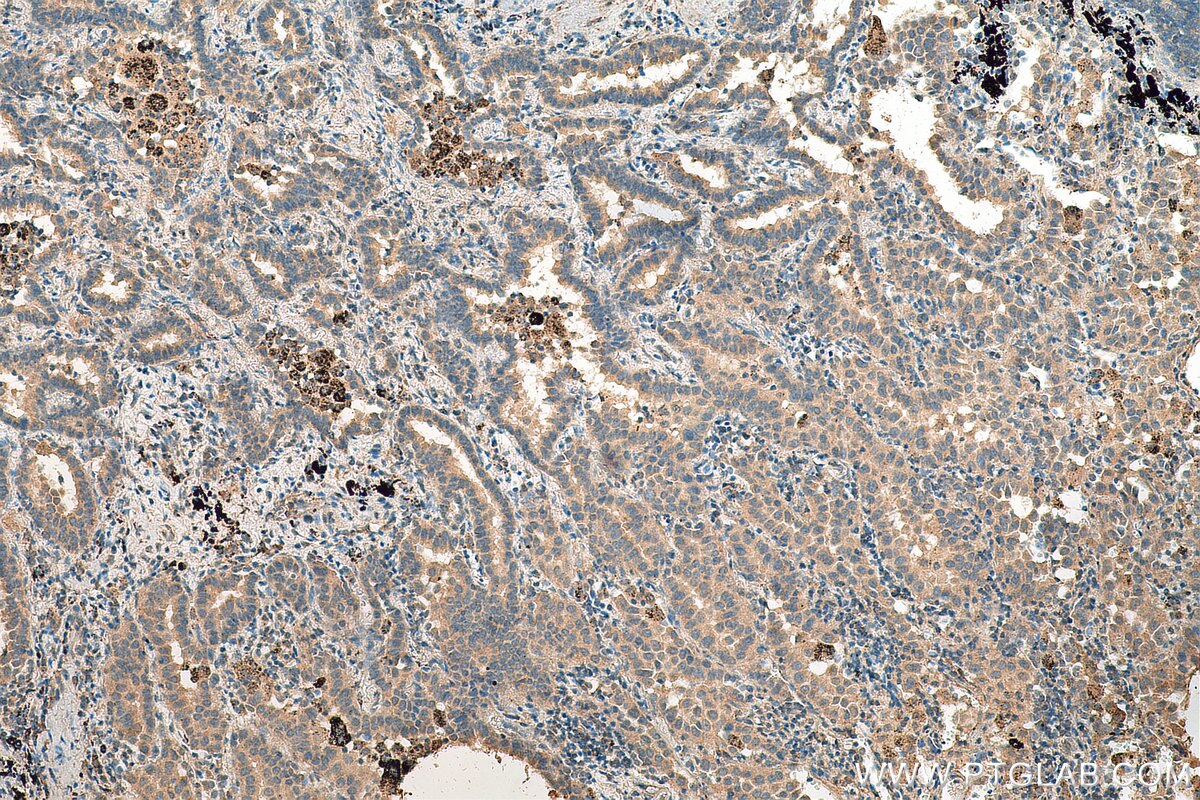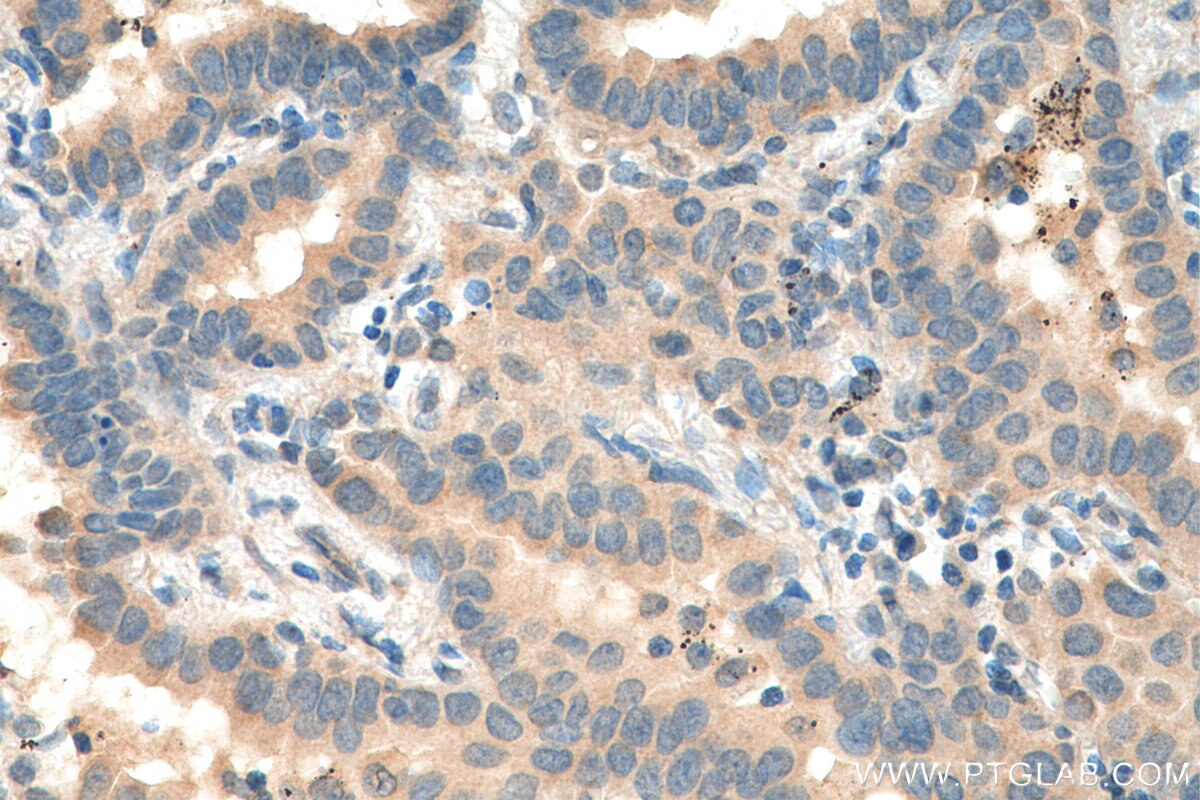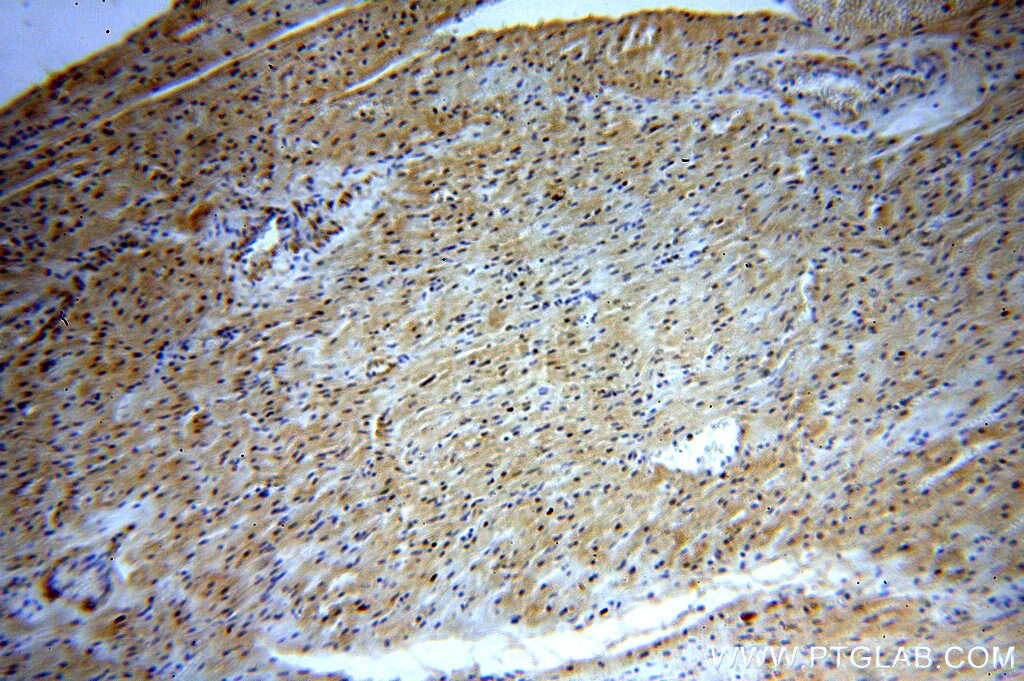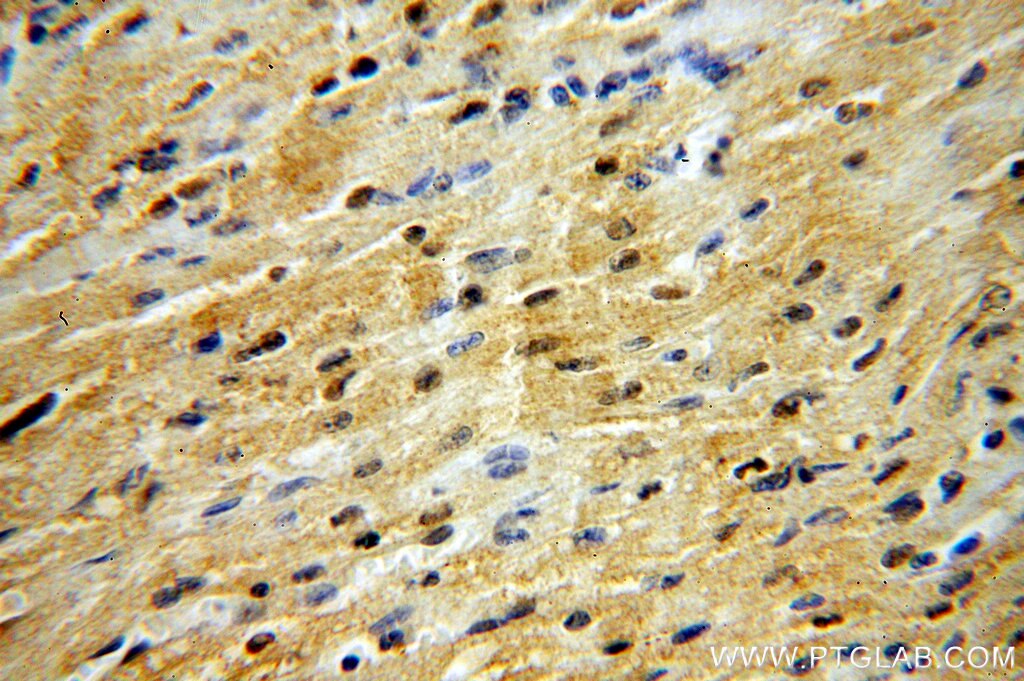- Phare
- Validé par KD/KO
Anticorps Polyclonal de lapin anti-DNMT3A
DNMT3A Polyclonal Antibody for IHC, ELISA
Hôte / Isotype
Lapin / IgG
Réactivité testée
Humain, souris
Applications
WB, IHC, ELISA
Conjugaison
Non conjugué
N° de cat : 19366-1-AP
Synonymes
Galerie de données de validation
Applications testées
| Résultats positifs en IHC | tissu rénal humain, tissu cardiaque de souris, tissu cardiaque humain, tissu de cancer du poumon humain il est suggéré de démasquer l'antigène avec un tampon de TE buffer pH 9.0; (*) À défaut, 'le démasquage de l'antigène peut être 'effectué avec un tampon citrate pH 6,0. |
Dilution recommandée
| Application | Dilution |
|---|---|
| Immunohistochimie (IHC) | IHC : 1:50-1:500 |
| It is recommended that this reagent should be titrated in each testing system to obtain optimal results. | |
| Sample-dependent, check data in validation data gallery | |
Applications publiées
| KD/KO | See 1 publications below |
| WB | See 7 publications below |
Informations sur le produit
19366-1-AP cible DNMT3A dans les applications de WB, IHC, ELISA et montre une réactivité avec des échantillons Humain, souris
| Réactivité | Humain, souris |
| Réactivité citée | Humain, souris |
| Hôte / Isotype | Lapin / IgG |
| Clonalité | Polyclonal |
| Type | Anticorps |
| Immunogène | DNMT3A Protéine recombinante Ag7015 |
| Nom complet | DNA (cytosine-5-)-methyltransferase 3 alpha |
| Masse moléculaire calculée | 912 aa, 102 kDa |
| Numéro d’acquisition GenBank | BC043617 |
| Symbole du gène | DNMT3A |
| Identification du gène (NCBI) | 1788 |
| Conjugaison | Non conjugué |
| Forme | Liquide |
| Méthode de purification | Purification par affinité contre l'antigène |
| Tampon de stockage | PBS avec azoture de sodium à 0,02 % et glycérol à 50 % pH 7,3 |
| Conditions de stockage | Stocker à -20°C. Stable pendant un an après l'expédition. L'aliquotage n'est pas nécessaire pour le stockage à -20oC Les 20ul contiennent 0,1% de BSA. |
Informations générales
DNA methylation in vertebrate animals is an epigenetic modification that is important for embryonic development, imprinting, and the inactivation of X chromosomes. DNA methylation is catalyzed by a family of DNA methyltransferases (DNMTs) that include the maintenance enzyme DNMT1 and de novo methyltransferases DNMT3a and DNMT3b. The overexpression of DNMT1, DNMT3a, and DNMT3b has been reported in various malignancies, including gastric, urothelial, and lung cancers, and may be related to tumorigenesis, tumor progression, and poor survival. Two isoforms of DNMT3a exist: the full-length DNMT3a, and the shorter form DNMT3a2 which lacks the N-terminal fragment. DNMT3a is expressed ubiquitously at low levels, while DNMT3a2 is specially expressed at high levels in embryonic stem cells and shows restricted expression in tissues known to undergo de novo methylation including testis and ovary. This antibody was raised against the N-terminal region of human DNMT3a. It is expected to detect the 120-130 kDa DNMT3a but not 72-100 kDa DNMT3a2.
Protocole
| Product Specific Protocols | |
|---|---|
| IHC protocol for DNMT3A antibody 19366-1-AP | Download protocol |
| Standard Protocols | |
|---|---|
| Click here to view our Standard Protocols |
Publications
| Species | Application | Title |
|---|---|---|
Nucleic Acids Res YY1 safeguard multidimensional epigenetic landscape associated with extended pluripotency. | ||
Development RNA ligase RTCB regulates mRNA Alternative splicing and is required for mouse oocyte development and maintenance | ||
Aging (Albany NY) ACADS acts as a potential methylation biomarker associated with the proliferation and metastasis of hepatocellular carcinomas. | ||
Biochim Biophys Acta HIC1 epigenetically represses CIITA transcription in B lymphocytes.
| ||
J Appl Toxicol Protein profiles of cardiomyocyte differentiation in murine embryonic stem cells exposed to perfluorooctane sulfonate. | ||
Int J Med Sci Simultaneous silencing Aurora-A and UHRF1 inhibits colorectal cancer cell growth through regulating expression of DNMT1 and STAT1. |
